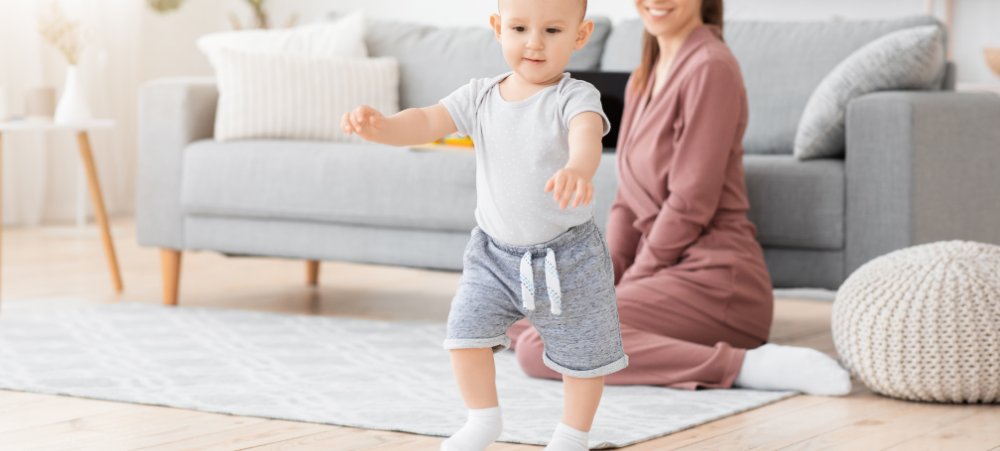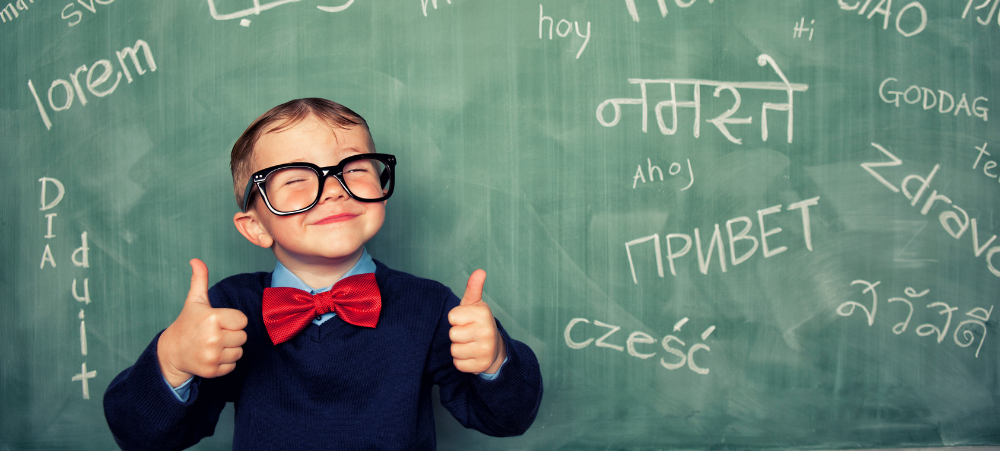When can you expect to hear your baby’s first words and how you can encourage speech development in your baby or toddler?
It’s another wonderful moment: The first time your baby looks up and says “Mama!” Perhaps they are just practicing their “m” sounds, but this is another step toward “Mommy, I love you” all the same. Whether it’s “mama,” “dada,” or some other cute combination of sounds, they are starting to vocalise and to imitate the sounds around them.
To encourage your child to talk you should talk to them often. Point out cats, balls and apples and so on. Talk about what is happening around you. Follow your child’s lead and describe the things your child points to, they will listen to you and they will learn.
As children learn new words, they might not get them quite right at first. Don’t feel like you need to correct them straight away. Help them by repeating the word after they say it, so that they can hear it again. Help build a child’s vocabulary by adding details to the objects and events of the day. For example, if the child says “car”, you could add, “Yes, that’s right, it’s a car. We drive in a red car”. Don’t be afraid to use expressive vocabulary when you talk about things.
If you get tired of talking why don’t you try reading to your child? While exposing your baby to language outside your own day-to-day vocabulary doesn’t guarantee your child will learn new words, it might help. And it can be a fun way to be close to your child.
Remember that children recognise and understand many more words than they can say. Don’t be afraid to use ‘parentese’ – that singsong, higher-pitched way of talking to young children.
Baby Talk Milestones
Baby talk at 3 months. Lots happen within the first 3 months of your baby’s development, and by the end of this period you’ll likely be hearing your baby offer up their sing-song coos as they interact with you. Something that you will probably notice is that they listen to your voice, watch your face as you talk, and turn toward other voices, sounds, and music that can be heard around the home.
Baby talk at 6 months. By 6 months that cooing has progressed to babbling as your baby combines a few basic consonant and vowel sounds. Strings of ba-ba-ba or da-da-da will bring a smile to your face. However, don’t mistake that “da-da” cry as being a call out for dad. Sounds at this age do not have meaning; they are simply sounds that your baby delights in making and in hearing.
Baby talk at 9 months. Your baby will have their language progress to having them recognise a few basic words, such as “no,” “more,” and their name. You’ll hear them using a larger range of consonant sounds, and they’ll have developed a tone of voice.
Baby talk at 1 year. Their development around the first birthday will showcase a few basic words, and they’ll use them with meaning and purpose. You’ll likely melt at the first heartfelt call of “mama” or “dada.” Your child will recognise their own name when you call them, but can’t say it.
Toddler talk at 12 to 17 months. They are using one or more words and know what these words mean. They will also raise their tone when asking a question, saying “Up-py?” when they want to be carried, for example. They realise the importance of talking and how powerful it is to be able to communicate their needs.
Toddler talk at 18 to 24 months. Their vocabulary may include as many as 200 words now, many of which are nouns. They’ll even string two words together, making basic sentences such as “Carry me.” By the time they are two, they’ll use three-word sentences and sing simple tunes. Their sense of self will mature, and they will start talking about themselves — what they like and don’t, what they think and feel.
Toddler Talk at 25 to 36 Months. Your child will struggle for a while to find the appropriate volume to use when talking, but they will soon learn. They also start to get the hang of pronouns, such as me and you. Between ages two and three, their vocabulary will increase to up to 300 words. They will string nouns and verbs together to form complete though simple sentences such as “I go now.”
Your baby’s first word is an exciting milestone, and one that you’re probably anxiously waiting for. Keep in mind, though, that every child develops at their own rate, and whether your child is an early talker or a late one seldom has an impact on their later communication skills. Talk, sing, read, and play silly games with them. The more you communicate — from birth on up — the more language they will learn.
We understand that there are many aspects that encompass a Mother, Father or Child and strive toward providing resources and services that accommodates this.
Our content is aimed to inform and educate families on issues starting from pregnancy through to the challenges of the teen-age years.
- Say Hello to the Ultimate Holiday Brunch Bite - December 17, 2025
- Tiny Toons Looniversity Returns: Meet the Voice Behind Plucky and Hamton! - December 12, 2025
- From Pain to Possibility: Panado®’s New Marketing Campaign, Highlights The Joy Of Pain Relief - December 10, 2025





